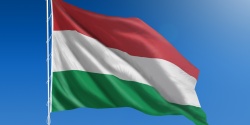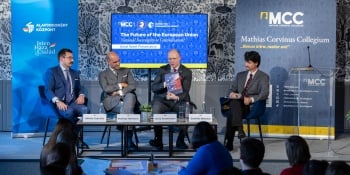Published: 20.04.2022

On April 13, 2022, the European Platform for Democratic Elections sent out from Berlin a newsletter regarding the recent elections in Hungary and the fact that the elections were observed by independent Election Observation Teams, including the one lead by the Ordo Iuris Institute for Legal Culture and the Collegium Intermarium University from Poland.
The European Platform for Democratic Elections is supported financially by the German Government and the European Union, which is in a dispute with the Hungarian government over a number of issues, and which did not hesitate to interfere with the democratic process in Hungary by making public proclamations critical of the Hungarian government and sanctioning the country financially in the period leading up to the elections. It also comprises a number of organizations some of which are organized and / or funded by George Soros, who is also in a long standing dispute with the Hungarian Government.
The first section entitled “Post-election statements and reports” makes false accusations that the independent observers had the “aim to endorse the elections”. It also suggests that the “Orban’s government invited” the observers, which is not true in the case of Ordo Iuris Institute and the Collegium Intermarium observers. They were also called “biased election observers” which is not true.
It is also stating that “International observers from OSCE ODIHR, OSCE Parliamentary Assembly, and the European Network of Election Observation Organizations (ENEMO) attested the lack of a level playing field for election contestants and a blurring of lines between the state and the ruling coalition led by Orbans’ Fidesz party”. They failed to notice the “blurring of lines” between the opposition parties and the European Union.
The second section of the newsletter “European Union must support Hungarian civil society to strengthen democratic institutions and fair elections” is calling for the European Union to “not make further financial support for the government in Hungary available, especially in the framework of the post-pandemic recovery fund” and is calling on the European Union “to work out a model of strategic and long-term financial support for civil society organizations in Hungary in order to ensure their further operability and effectiveness”. This section is disregarding the fact that the election turnout was over 70% and that the ruling coalition obtained a majority of 54% of the votes cast. It is calling for further financial pressure on the Hungarian population until it starts voting according to the wish of Berlin and Brussels and not according to their own convictions.

02.05.2025
· The Ordo Iuris Institute, the Hungarian Center for Fundamental Rights, and the Foundation of the Patriots for Europe group in the European Parliament organized a conference in W

• Representatives of Ordo Iuris took part in the second round of consultations ahead of the 58th Session of the UN Commission on Population and Development (CPD58) on global health policy.


• The European Union’s Council Conclusions on EU Priorities in UN Human Rights Fora in 2025 identify key areas of EU human rights activities at UN fora and refers to several universal human rights, such as freedom from torture and freedom of religion or belief.